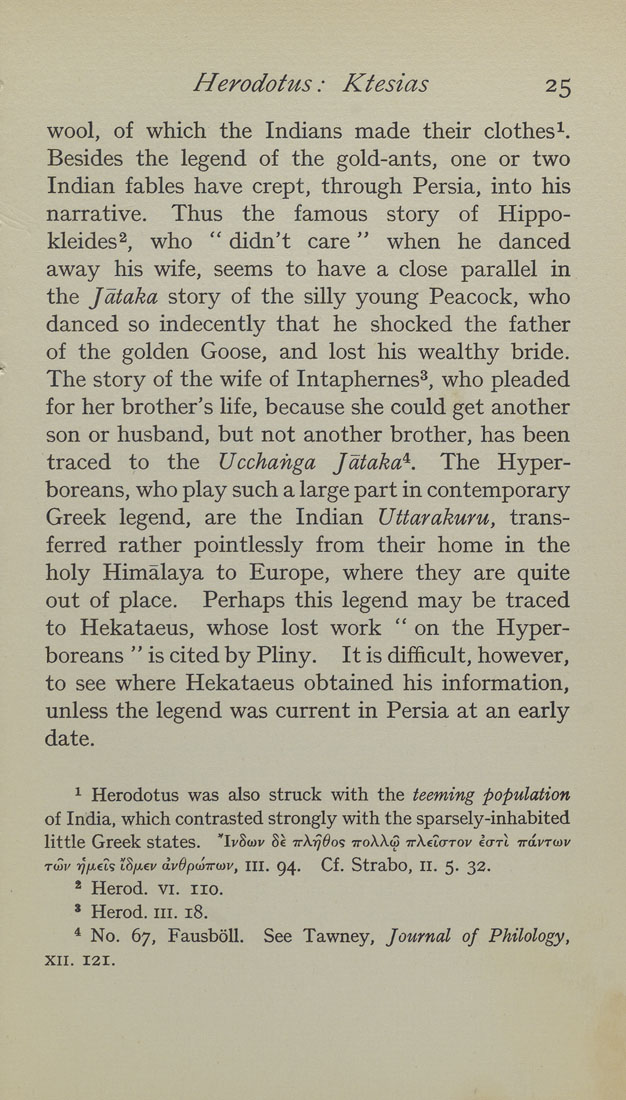Herodotus: Ktesias 25
wool, of which the Indians made their clothes^.
Besides the legend of the gold-ants, one or two
Indian fables have crept, through Persia, into his
narrative. Thus the famous story of Hippo-
kleides^, who " didn't care" when he danced
away his wife, seems to have a close parallel in
the Jdtaka story of the silly young Peacock, who
danced so indecently that he shocked the father
of the golden Goose, and lost his wealthy bride.
The story of the wife of Intaphernes^, who pleaded
for her brother's life, because she could get another
son or husband, but not another brother, has been
traced to the Ucchanga Jdtaka^. The Hyper¬
boreans, who play such a large part in contemporary
Greek legend, are the Indian Uttarakuru, trans¬
ferred rather pointlessly from their home in the
holy Himalaya to Europe, where they are quite
out of place. Perhaps this legend may be traced
to Hekataeus, whose lost work " on the Hyper¬
boreans " is cited by Pliny. It is difficult, however,
to see where Hekataeus obtained his information,
unless the legend was current in Persia at an early
date.
^ Herodotus was also struck with the teeming population
of India, which contrasted strongly with the sparsely-inhabited
little Greek states. "Ivhoiv 8e ■n-XrjBo'; 7roXA.<3 TrXeto-rov cCTTi Travrwi/
Twi/ -qfji^i'; iS/1,61/ av^pwTTwv, III. 94. Cf. Strabo, II. 5- 32.
* Herod, vi. no.
* Herod, in, i8,
* No, 67, FausboU. See Tawney, Journal of Philology,
XII. 121.
|








